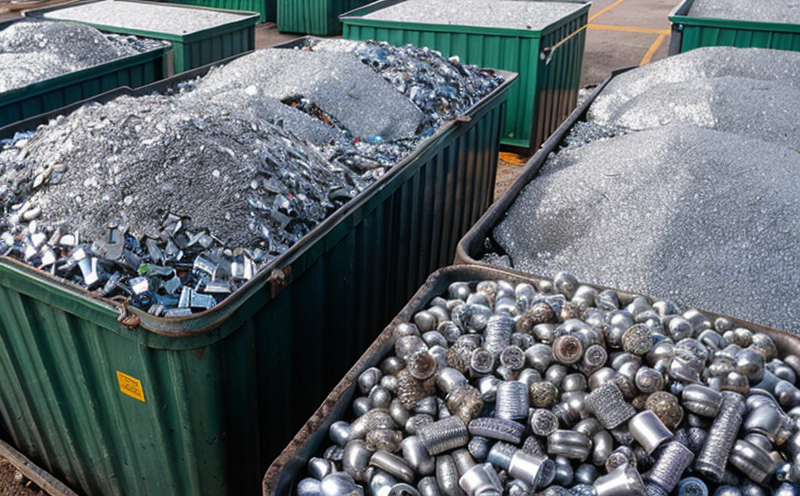ASTM E175 Forging Properties of Recycled Metals
The ASTM E175 standard is a critical tool in ensuring the quality and reliability of recycled metals, particularly those used in forging processes. This testing method evaluates the mechanical properties of materials intended for forging applications to ensure they meet or exceed specified performance criteria.
Forging involves shaping metal into desired forms using repeated application of force. For recycled metals, this process can introduce impurities and changes in microstructure that may affect their suitability for certain applications. ASTM E175 provides a standardized approach to assess these properties, ensuring that the recycled materials are fit for use.
The test procedure outlined in ASTM E175 involves several key steps:
- Material characterization: Identification of the metal type and purity.
- Sample preparation: Cutting and shaping specimens to standard dimensions.
- Tensile testing: Measuring tensile properties under controlled conditions.
- Bend testing: Assessing bendability and ductility.
The results from these tests are essential for quality control, ensuring that recycled metals meet the mechanical requirements necessary for forging processes. This standard is widely recognized in industries such as automotive, aerospace, and manufacturing, where high-quality materials are critical.
Why Choose This Test
Selecting ASTM E175 for testing recycled metals offers several advantages that are crucial for maintaining quality standards in the manufacturing process:
- Standardization: Ensures consistent and reliable results across different laboratories.
- Compliance: Helps manufacturers comply with regulatory requirements and industry standards.
- Quality Assurance: Provides confidence in the integrity of recycled materials, ensuring they meet forging specifications.
By choosing this test, quality managers and compliance officers can ensure that their materials are fit for purpose, thus reducing waste and improving overall efficiency. This is particularly important in industries where high-quality metals are essential to product performance and safety.
Quality and Reliability Assurance
The ASTM E175 forging properties test plays a pivotal role in maintaining quality and reliability of recycled metals used in forging processes. This section provides an in-depth look at the standards, testing procedures, and real-world applications:
Testing Procedures:
- Tensile Testing: Measures the maximum stress a metal can withstand before breaking.
- Bend Testing: Evaluates the metal's flexibility and ductility under bending loads.
- Hardness Testing: Determines the hardness of the metal using various scales like Rockwell or Brinell.
The results from these tests are compared against specified limits outlined in ASTM E175 to ensure compliance. Compliance ensures that recycled metals can be safely and effectively used in forging processes, which is critical for maintaining product quality and safety.
Environmental and Sustainability Contributions
- Resource Efficiency: By reusing scrap metal, the industry reduces the need for virgin materials, conserving natural resources.
- Emissions Reduction: Recycling metals typically requires less energy than producing new metals from raw materials, leading to lower greenhouse gas emissions.
- Waste Minimization: Ensures that materials are used efficiently and minimally contribute to landfills or other waste streams.
The ASTM E175 test supports these environmental goals by ensuring that recycled metals meet the necessary quality standards for forging processes. This helps in optimizing the recycling process, reducing waste, and promoting sustainability throughout the supply chain.





